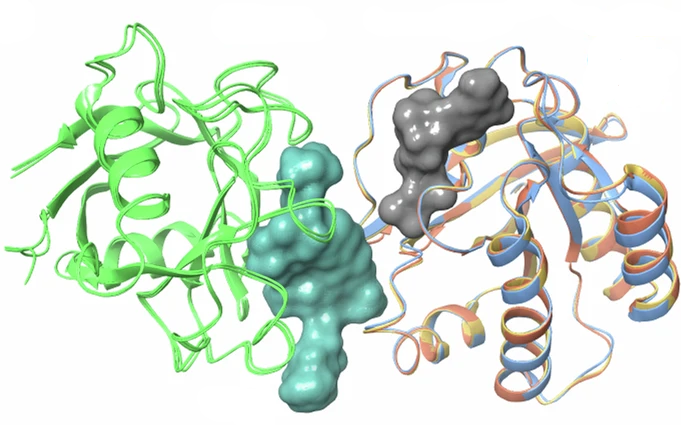A potential breakthrough in treating RAS-driven cancers
Cancers caused by mutations in the RAS gene family—which include pancreatic, colorectal, lung, skin, and ovarian cancers, among others—have thwarted drug development efforts for decades. The RAS enzymes, KRAS, NRAS, and HRAS, act as molecular switches, turning “on” and “off” the cell’s ability to grow. When mutated, RAS proteins become stuck “on,” causing cells to proliferate uncontrollably. For 40 years, these mutants were considered “undruggable,” their surface too smooth for therapeutic molecules to bind.

That changed in 2021, when a clinical trial led by former Damon Runyon Clinical Investigator Piro Lito, MD, PhD, resulted in the first FDA approval of a KRAS inhibitor, sotorasib, for the treatment of non-small cell lung cancer. This breakthrough revitalized RAS drug discovery efforts: having determined how to inhibit the mutant protein, researchers began investigating if it was possible to restore its function as an on/off switch.
Earlier this year, Dr. Lito and his mentee, Damon Runyon Fellow Antonio Cuevas-Navarro, PhD, announced their success in doing just this. In a paper published in Nature, the team describes their innovative approach, which involves binding the mutant RAS protein to another enzyme, called cyclophilin A, using “molecular glue.” Cyclophilin A, they found, restores mutant RAS’s ability to turn the cell growth switch “off.”
“Instead of passively blocking RAS—which has been the go-to method to date—this new approach works with the protein’s natural function, aiming to correct the very defect that drives cancer growth,” Dr. Lito explained to his institution.
The new therapeutic compound, known as a tri-complex inhibitor, is now being tested in clinical trials with patients whose lung, colorectal, or pancreatic cancer harbors a RAS mutation. According to the team, early reports from these trials are promising, “and, if successful, could improve care for millions of people whose cancers are driven by these mutations.”
